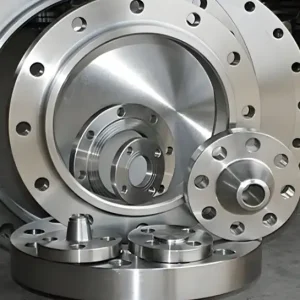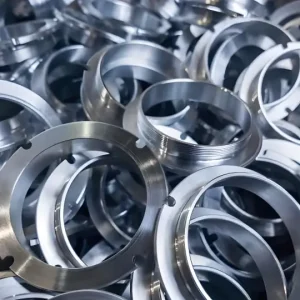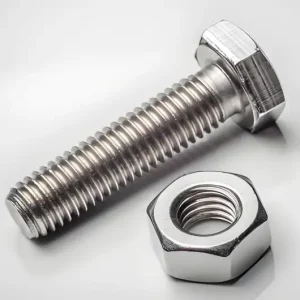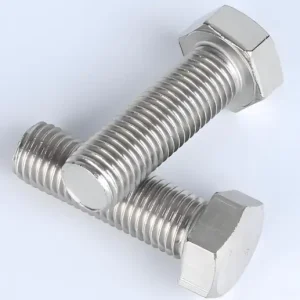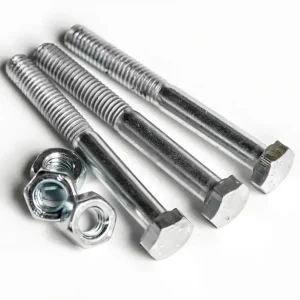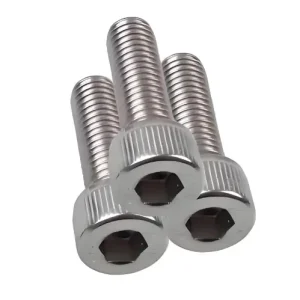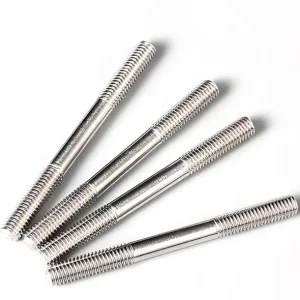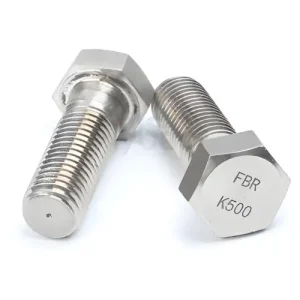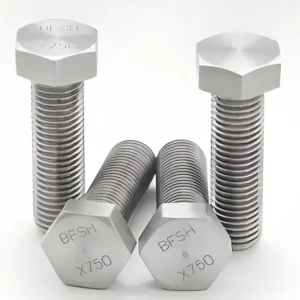Alloy Fasteners
Products
Nickel alloy fasteners are the go-to solution when a project requires resistance to aggressive corrosion, sustained performance at elevated temperatures, or long service life under cyclic load. For marine or chemical environments pick Monel or Hastelloy; for high temperature strength choose Inconel 625/718; for general corrosion resistance and conductivity choose Nickel 200/201. When sourcing, specify the exact alloy grade, temper/heat treatment, and the governing standard (for example ASTM F2281 for nickel alloy bolts), then insist on traceable material certificates and mechanical tests. MWAlloys supplies these fasteners from our China factories at 100% factory prices with ready stock for common sizes and rapid dispatch for production orders.
What are nickel alloy fasteners?
Nickel alloy fasteners are bolts, screws, nuts, studs and washers made from nickel-based or nickel-bearing alloys rather than plain carbon or common stainless steels. They combine corrosion resistance and mechanical strength in environments that would quickly degrade ordinary steels. Typical product forms include hex bolts, cap screws, socket head screws, threaded rods, studs, nuts and washers for use in pressure vessels, pump flanges, heat exchangers, subsea assemblies and high-temperature equipment. Manufacturers produce them to the same geometries and thread classes used in other metals, but the raw material chemistry and heat treatment determine long-term performance.
Common nickel alloys used for fasteners
| Alloy (common name) | Typical UNS | Key attributes | Typical service temperature / notes |
|---|---|---|---|
| Inconel 625 | N06625 | High strength, excellent oxidation and corrosion resistance at elevated temperatures; good weldability | Service to ~1000°C depending on load and environment. Often used in aerospace, heat exchangers. |
| Inconel 718 | N07718 | High yield and tensile strength after age-hardening; good creep resistance; widely used for high-load, high-temp fasteners | Up to ~700–800°C for sustained service with controlled heat treatment. |
| Monel 400 | N04400 | Exceptional resistance to seawater and many reducing acids; good toughness | Best for marine and chloride environments; not as oxidation resistant at very high temperature. |
| Monel K-500 | N05500 | Similar corrosion resistance to Monel 400 but precipitation-hardenable for higher strength | Used when higher strength than Monel 400 is needed. |
| Hastelloy C-276 | N10276 | Excellent resistance to oxidizing and reducing media including chlorides and strong acids | Preferred in highly aggressive chemical plants. |
| Nickel 200 / 201 | N02200 / N02201 | Commercially pure nickel; excellent resistance in alkaline and reducing environments; good conductivity | Used for chemical processing equipment; magnetic (Nickel 200). |
| Alloy 20 | 2.4660 | Good resistance to sulfuric acid; alternative when stainless steels fail | Common in chemical and pulp applications. |
(Numbers above are representative ranges; for design use the full material spec and supplier mill cert.)
Corrosion behavior and environments
Nickel alloys differ in how they interact with chloride, sulfuric, nitric and reducing media. Monel alloys (nickel-copper) resist pitting and crevice corrosion in seawater and chloride solutions better than many stainless steels. Hastelloy variants are engineered for aggressive oxidizing and reducing acids. Inconel alloys trade off a degree of aqueous corrosion resistance for superior high-temperature oxidation resistance and strength. Salt spray testing (ASTM B117) is commonly used for relative comparisons, but it does not replace application-specific corrosion tests because real-world seawater, process chemistries and temperature cycles produce different results. When specifying material, call out the expected media, temperature, and whether cathodic protection or galvanic coupling will occur.
Mechanical properties, temperature performance, and creep
Fastener selection must consider yield strength, tensile strength, hardness, and how properties change with temperature. Age-hardenable nickel superalloys (for example Inconel 718) can deliver very high static load capacity after proper heat treatment. For sustained high-temperature service, creep resistance becomes critical; choose alloys with proven creep data and consult vendor curves. For cyclic or vibration loads, fatigue properties, thread engagement length, and correct preload (torque/tension) are decisive. Many nickel alloys are stronger but more difficult to machine, and some tend to work-harden if tools and feeds are not controlled.
Standards, specifications and testing
Buyers should reference industry standards and tests on purchase orders and drawings. Key standards include:
-
ASTM F2281 — specification for stainless steel and nickel alloy bolts, hex cap screws, and studs for heat resistance and high temperature applications. This standard defines material types, mechanical tests, and heat resistance criteria.
-
ASTM B446 and other alloy-specific ASTM specs for bar/forging material and corrosion tests (common for Inconel 625; check alloy spec).
-
Product standards for nuts and heavy hex products (for example ASTM A194/A563 where applicable) may also apply; check compatibility with a nickel alloy.
-
Where defense, oil & gas or subsea codes apply, also specify relevant MIL, NORSOK or API callouts.
Always request mill test certificates (chemical and mechanical), heat numbers, traceability to raw material, and non-destructive testing or dimensional reports for critical fasteners.
Manufacturing, machining and heat treatment nuances
Manufacturing nickel alloy fasteners is more demanding than for common steels. Nickel superalloys can work-harden rapidly; controlled tool geometry, slower feeds, and rigid setups reduce problems. Thread rolling may be possible for some alloys but requires qualified tooling and process controls to avoid cracking. Heat treatment schedules (solution treat, age harden) must be documented and validated because mechanical properties depend heavily on post-machining heat treatment for age-hardenable alloys. For Monel and pure nickel grades, typical heat treatments aim mainly at stress relieving. Many suppliers use hot forging for bolt blanks, finish machine threads, and then apply passivation or pickling to remove surface contaminants. Certify processes and request process qualifications for critical items.
Selecting the correct alloy
-
Identify the primary environmental threat (chloride pitting, sulfuric corrosion, oxidizing acid, seawater, high temp oxidation).
-
Define maximum continuous temperature and whether exposure is cyclic.
-
Decide mechanical requirements (yield, tensile, torque, fatigue).
-
Review galvanic compatibility with adjacent metals (nickel alloys are more noble than carbon steels).
-
Confirm manufacturability (can supplier produce heat-treated parts in required sizes?).
-
Specify standards, inspection and traceability requirements on the PO.
-
Evaluate total cost: alloy price + manufacturing premium + testing + lead time.
When in doubt, pilot one assembly or request small batch testing in the real process chemistry before converting full systems.
Typical industries and application examples
-
Offshore / marine: pump shafts, valve bolts, strainers, and flange fasteners where chloride attack is a concern — Monel and some Hastelloys.
-
Chemical processing: reactors, piping, and heat exchangers that contact strong acids — Hastelloy, Alloy 20.
-
Aerospace / gas turbines: high temperature bolting where creep and oxidation resistance matter — Inconel 718/625.
-
Power & petrochemical: furnace, reformer and steam systems requiring high temp fasteners — Inconel variants.
-
Desalination & seawater systems: Monel and nickel 200 in specific components.
Procurement must match alloy to stress, environment and applicable code.
Quality control, traceability, and inspection tests buyers must request
For critical fasteners require:
-
Mill Test Certificate (MTC, EN10204 3.1/3.2) showing chemical composition and mechanical test results.
-
Heat numbers traceable to raw bar/ingot.
-
Hardness testing and tensile/yield results for each lot or sample lot.
-
Surface condition documentation (passivation, pickling).
-
Non-destructive testing when needed (UT for studs in critical assemblies).
-
Salt spray or corrosion test data for qualification batches (informational only — real service tests are superior).
-
Dimensional and thread gauges reports.
Insist on supplier process qualifications and documented heat-treatment cycles for age-hardenable alloys.
Buying guidance — cost, lead time, MOQ, and why choose MWAlloys
Cost drivers: raw nickel content, alloying elements (Cr, Mo, Nb, Cu), complexity of machining, special heat treatment and certification. Inconel and Hastelloy typically sit above Monel in price; commercially pure nickel may be lower by material cost but still costly compared with stainless steels. Recent market movement and nickel commodity price fluctuations affect quotes; always request firm pricing for a defined period.
Lead time: standard sizes in common alloys may be stocked by specialty fastener houses, but custom sizes, special heat treatments or heavy hex bolts can take several weeks. Using an established China factory supplier that holds inventory shortens lead times.
Why MWAlloys: MWAlloys works directly with qualified China manufacturers and precision fastener plants that produce nickel alloy bolting to ASTM and MIL grades. Our stock program focuses on commonly used sizes for Inconel 625/718, Monel 400/K-500 and Hastelloy C-276, enabling fast shipments. Because we sell direct from factory we provide 100% factory price, lower margins than distributors, and streamlined documentation (MTCs, heat numbers). For large orders we handle process audits and supplier raw material traceability. For urgent needs we can usually ship from inventory or expedite production using local capacity in China.
Comparison quick-charts
Monel vs Inconel (high-level)
| Feature | Monel (e.g., 400) | Inconel (e.g., 625 / 718) |
|---|---|---|
| Main alloying | Nickel-copper | Nickel-chromium (plus Nb, Mo for 625/718) |
| Best use | Seawater, chloride media | High temperature strength, oxidation/corrosion at high temp |
| Machinability | Work-hardens but manageable with care | Harder to machine; special tooling often needed |
| Typical industries | Marine, seawater systems | Aerospace, heat exchangers, turbines |
| Relative cost | Moderate | Typically higher (depends on grade and market) |
FAQs
-
Which nickel alloy is best for seawater flange bolts?
Monel 400 is widely used for seawater environments due to strong resistance to chloride pitting and crevice corrosion. In some aggressive cases Hastelloy grades or duplex stainless steels are considered; match the alloy to the precise chemistry and temperature. -
Are nickel alloy bolts magnetic?
It depends on grade. Pure nickel (Nickel 200) shows magnetic behavior at room temperature; many nickel alloys such as Inconel and Monel are essentially non-magnetic or weakly magnetic depending on composition and heat treatment. -
What standard should I specify for high-temperature nickel bolts?
ASTM F2281 covers stainless steel and nickel alloy bolts, hex cap screws and studs for high temperature applications and is commonly referenced. -
Can nickel alloy fasteners be passivated?
Yes; passivation or pickling is often applied to remove surface contamination and improve corrosion resistance. Specify the passivation chemistry and acceptance criteria. -
Is thread rolling allowed for Inconel or Monel?
Thread rolling can be performed on some nickel alloys but must be qualified. Alloys that work-harden rapidly require careful process control to avoid cracking. -
How does price compare between Monel and Inconel?
Inconel grades often cost more due to higher alloying with Nb, Mo and Cr; market nickel price swings affect both. Always request current firm quotes. -
What inspection docs should arrive with a critical fastener shipment?
Mill test certificate (EN 10204 3.1/3.2), heat number traceability, hardness/tensile test records, dimensional report, and any NDT records requested by contract. -
How to avoid galvanic corrosion when using nickel alloy bolts with steel components?
Reduce potential difference by isolation (gaskets, washers, coatings), or use sacrificial anodes if appropriate. Avoid direct contact between dissimilar metals in wet environments when possible. -
Are there packaging or storage precautions?
Keep fasteners dry and in original packaging. For long storage avoid contamination with chlorides and acidic residues. -
How quickly can MWAlloys deliver standard nickel alloy fasteners?
For stocked common sizes we typically ship within a few business days after PO and payment. For made-to-order or heat-treated items lead time depends on batch size and testing—confirm on the quote.

